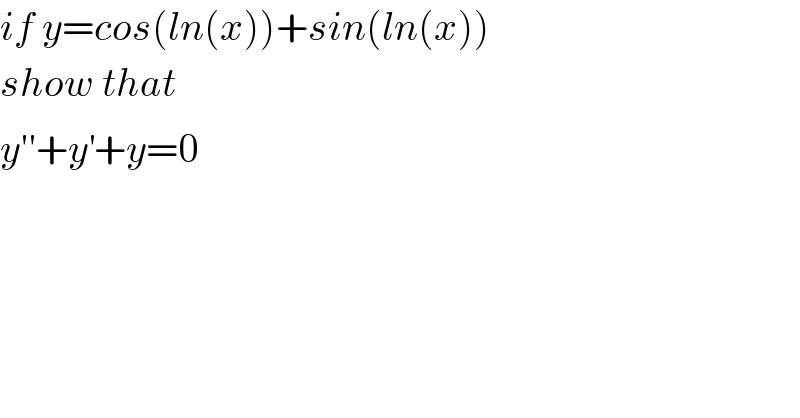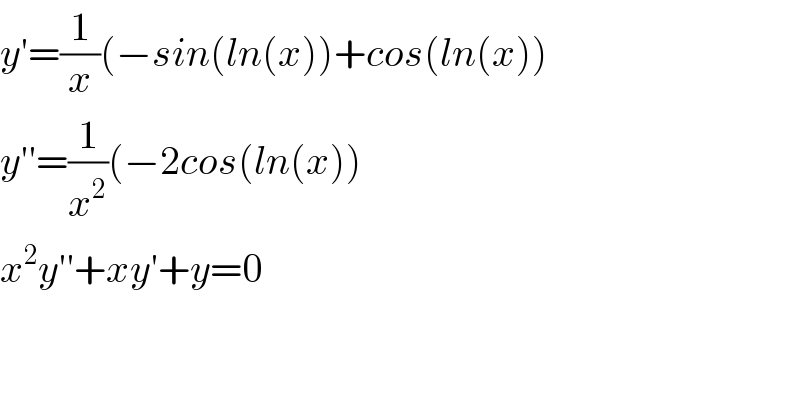
Question and Answers Forum
Question Number 82579 by M±th+et£s last updated on 22/Feb/20

Answered by mind is power last updated on 23/Feb/20

| ||
Question and Answers Forum | ||
Question Number 82579 by M±th+et£s last updated on 22/Feb/20 | ||
 | ||
Answered by mind is power last updated on 23/Feb/20 | ||
 | ||
| ||